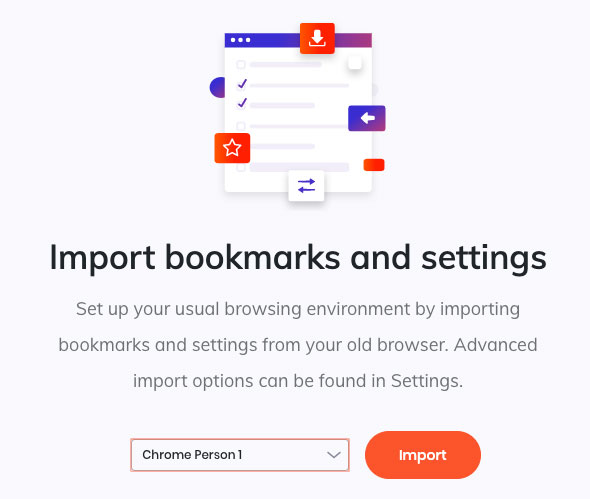Brave Browser is a privacy focused webs browser, developed by Brave. For users considering switching from less privacy respecting browsers such as Chrome and Internet Explorer, Brave is seen as a great alternative. But what makes Brave Browser safe to use?
There are a host of features directly baked into the browser that makes it one of the best browsers to use. You can check out our recommended privacy settings for Brave in our other article.
Download Brave Browser for Mobile & Desktop. With your old browser, you paid to browse the web by viewing ads with your valuable attention. The Brave browser, like so many others, is built on the open-source Chromium code by Google. Open-source means anyone can use the source code and piggy-back on top of it to build whatever they want — like the Opera and Edge browsers. But it doesn’t mean that all Chromium-based browsers are equal or are themselves open source. Is the brave browser safe? Short Answer is ‘Yes’ but Brave is not the MOST secure browser among all. Brave is a Chromium Browser.That means, it uses Chromium Project’s source code. Chromium Project is open-source and it is maintained by Google. Brave Browser hit the news for deceiving customers by redirecting websites to affiliate links. Is Brave Browser safe to use?Download Brave Browser: htt.
Blocks Ads and Trackers by Default.
Brave ships with an in-built ad blocker straight out of the box. This is extremely helpful considering some of the more popular ad blocker extensions over the years have been sold to marketing customers, potentially leveraging your data in the process.
Known as Brave Shields, the blocker can be fine tuned for each individual website, meaning if you experience issues with the rendering of a particular website, you can adjust it as necessary. With the in-built blocker, there is no need to install third-party extensions like uBlock Origin.
In-Built HTTPs Upgrades
Where previously privacy-conscious users needed to install third-party extensions such as HTTPS Everywhere, Brave Shields includes this by default. This allows you to save resources by not needing to install multiple extensions.
The HTTPs upgrades feature will attempt to upgrade each visit to a website where https is available. For example, if you are provided a link to http://google.com, Brave will redirect you to https://google.com instead, resulting in a safer browsing experience.
Fingerprint Protection
The in-built features continue with Brave’s anti-fingerprint technology. Fingerprinting is a process whereby you as a visitor are identified by certain characteristics in your browser, such as the resolution size, what plugins you have, clock-skew, and system fonts. It is a method for a website to identify you if they can not place a cookie on your system.

This has become a particularly invasive way for websites to identify you, especially since many people believe by simply not allowing cookies on their devices they may be safe.
This technology makes Brave ones of the safest browsers to use and is a very welcomed feature.
Script Blocking
The last inbuilt feature of note is Script Blocking. This feature is actually turned off by default on new installations of Brave browser so it is an important consideration when trying to take back your privacy.
A small word of warning however, turning on this feature can see some websites break. Be safe in the knowledge however that no dodgy websites however are trying to launch malicious code in your browser.
Brave Browser is Safe.
Brave is absolutely one of the safest browsers you can use. It is much more privacy-respecting that Google Chrome and Internet Explorer, and your browsing behavior such as your history and bookmarks, do not leave your machine or device.
Along with the inbuilt features saving you resources, Brave is a easy choice when looking to browse safely.
Just like the Firefox browser, the Brave browser is free, open source and focused on protecting users’ privacy. Brave is a relative newcomer to the world of browsers: its maker, Brave Software, first debuted the browser in January 2016. In this article we’ll compare our Firefox browser with the Brave browser in three categories: privacy, utility and portability.
| Security and Privacy |
|---|
| Private Browsing mode |
| Blocks third-party tracking cookies by default |
| Blocks cryptomining scripts |
| Blocks social trackers |
The Brave browser, like so many others, is built on the open-source Chromium code by Google. Open-source means anyone can use the source code and piggy-back on top of it to build whatever they want — like the Opera and Edge browsers. But it doesn’t mean that all Chromium-based browsers are equal or are themselves open source.
Brave differentiates itself from the other Chromium browsers by focusing on user privacy — specifically by blocking trackers, scripts, and ads by default. So when you use the Brave browser, the areas of a website that would normally display ads appear as blank spaces. In some instances, pages don’t load properly, which will require you to either choose a different browser or flip the ‘Shields Up’ setting to ‘Shields Down’ which turns off the privacy and security protection.
The Internet as a whole is largely paid for by display advertisements, which keeps the actual content you want to view free. Brave has attempted to upend this model by encouraging its users to opt into Brave’s own reward system, which in reality, is its own ad platform. Once a user has opted-in, Brave will display what they call “privacy-respecting ads” for which you can view and earn what they call a Basic Attention Token a.k.a. a BAT. From this point Brave users can choose to spend their BATs on supporting the sites or individual contributors they love, who in turn can convert the BATs into actual currency.
Whether this sounds complicated or like a great idea, probably depends on your level of contempt for the display advertising on the Internet. Most Internet users understand that good content costs money, and are okay with the fact that the money comes from advertising.
On the other side of the coin, with the Firefox browser, we prefer to keep things simple. Firefox blocks many third party trackers, cryptominers and fingerprinting trackers from following you by default. However, Firefox, outside of Private Browsing Mode, chooses not to block display ads from appearing. That is, unless you install one of the extensions specifically designed for that purpose.
There are a few security features in Brave worth highlighting, such as its automatic HTTPS connection upgrades (which Firefox also offers by extension). Brave and Firefox both offer users a native password manager and the ability to check their security statistics anytime. Brave displays stats like the number of trackers it has blocked whenever you open a new tab. Firefox displays similar information when you view your privacy report which can be accessed anytime by clicking the shield in the address bar.
The bottom line is that even though Brave’s revenue model with the Basic Attention Tokens may be too complex for a lot of users, overall both Brave and Firefox browsers offer a variety of ways to enjoy a safe and private browsing experience.

Utility
| Utility |
|---|
| Autoplay blocking |
| Tab browsing |
| Bookmark manager |
| Automatically fills out forms |
| Search engine options |
| Text to speech |
| Reader mode |
| Spell checking |
| Web extensions/Add-ons |
| In-browser screenshot tool |
What might surprise some new Brave users is just how fast pages tend to load in the browser. A cloud guru terraform. The reason for these speedy load times is that pages load much quicker when you block all of the advertising on them. There’s simply less to load so it takes less time.
In terms of actual precious RAM usage, the Brave browser is much heavier than Firefox. Brave comes pre-loaded with various features and “add-ons” which can be attributed to its usage of more RAM. Firefox, on the other hand, lets you decide which add-ons and extensions you want to bolt on.
Customization of UI elements and themes have been a favorite feature of Firefox users for years and our avid community of developers have created a vast library of open source add-ons and extensions allowing for even more personalization and functionality. Features that come with Firefox when you download include our powerful screenshots tool, accessibility features and integration with Pocket — a resource that lets users quickly save an article for later reading on any device.
Brave also supports the huge library of extensions available in the Google Chrome web store and offers a variety of in-browser features like the aforementioned Brave Rewards program, and support for downloading torrents in the browser.
Download Firefox Browser
Brave Browser Safe Or Not
| Portability |
|---|
| OS availability |
| Mobile OS availability |
| Syncs with mobile |
| Password management |
| Primary password |
Is The Brave Browser Safe

The ability to sync your passwords, extensions, form data, add-ons and other preferences across all your devices and operating systems is a feature that’s been available for years with Firefox. The synced data is also encrypted, which means no one can access it from the outside.
The Firefox browser also gives users the ability to sign up for a free Firefox Account. Having a Firefox account is the key to unlocking syncing across devices, plus you get the added benefit of products like Firefox Monitor which monitors your email addresses and alerts you if any of your information has been involved in any known data breaches.

Brave also recently gained the ability to sync data across most popular operating systems and devices as well with the added capability of syncing your Basic Attention Tokens.
Overall Assessment
When comparing the two browsers, both Firefox and Brave offer a sophisticated level of privacy and security by default, available automatically from the very first time you open them.
Brave’s advertising replacement idea is a twist on the current model of paid ad placement and paid search. But again, some busy Internet users will probably not want to get too involved with the management of micro payments to sites in exchange for their time and attention.
Overall, Brave is a fast and secure browser that will have particular appeal to cryptocurrency users. But for the vast majority of internet citizens, Firefox remains a better and simpler solution.

The comparisons made here were done so with default settings and across browser release versions as follows:
Firefox (81) | Brave (1.14.81)
This page is updated semi-quarterly to reflect latest versioning and may not always reflect latest updates.
